
“The most outdated and destructive vestigial feature in the modern K-12 space is the emphasis on standardized testing along with the college admissions and enrollment processes which rely on these testing conventions. With the digital tools we have on hand, we could liberate children to experience and demonstrate their learning in far more compelling ways via live documentation of community-based or real-world endeavors.” — Lisa Goochee
Global classroom collaboration to share good practice – does anyone do it on quite the same scale as Edmodo? On August 4, EdmodoCon 2015 will be streamed live from San Mateo, California. Thousands and thousands of teachers from all over the world will log on to what some call the educational collaboration event of the year in order to share the ways they are using Edmodo and other tech tools to personalize learning. Teresa Perles, Alfa Y Omega, Denia, Spain; Bianca Hewes, Northern Beaches Secondary College, Sydney, Australia; Lisa Finch, Dubai English Speaking College, Dubai, United Arab Emirates; Josh Gaines, International School Eastern Seaboard, Chonburi, Thailand; Premanand Edward Malyakkal, Malabar Christian College, Calicut Kerala, India; Lisa Goochee, former teacher, School of the National Brasilia, Brazil and now a Stanford Learning, Design and Technology student; and John Choins, Midway Middle School, Woodway, Texas, join me ahead of the big event in The Global Search for Education to talk EdTech.
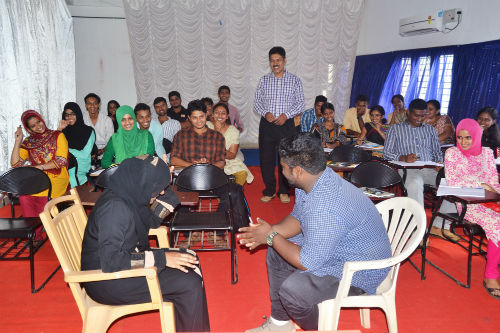
“Educators of 2015 no longer can use the excuse that they didn’t know, when there are so many places to help them be in the know.” Canadian Educator Karen Lirenman encourages a global collective leadership model for teachers. Thoughts?
Teresa Perles, Spain: Absolutely. Teachers should all be acquainted with technology and develop their skills further through their PLN (personal learning network), and through communication with peers in these networks, a global collective leadership model could be agreed upon.
Bianca Hewes, Australia: I absolutely agree. The benefit of nourishing a global learning community has seen me thrive as a teacher – these connections have given my students real-world audiences and purposes for their learning, and have supported me through the roller-coaster ride that is being a teacher. Those of us privileged to have already established a global professional learning network have a responsibility to encourage and support other teachers to develop their own as well.
Lisa Finch, United Arab Emirates: Edmodo is a really great example of a way in which educators can connect with each other – as part of specialized subject communities/groups and also via resource sharing such as Spotlight. It is bringing everyone closer together and is allowing education to evolve on digital platforms. Knowledge sharing is key. Social networking sites (such as Twitter) are also hubs for teachers to share, advise and innovate. Live webinars and free online MOOCs (eg: Coursera) give us opportunities to extend our existing skill sets and knowledge. I recommend all teachers to get online. Find things out, make connections and continue to learn. Be role models for students and other educators. Take risks (especially with technology), follow peers and innovators, be resilient, share ideas and go the extra mile. Never stand still.
Josh Gaines, Thailand: The best way to improve in your practice is to observe your peers and work with others who know what they’re doing.
Premanand Edward Malyakkal, India: As a teacher from South India, it is still the good old newspaper, particularly interesting when accompanied with a cup of coffee. Curated sites installed as Apps bring out graphic, visual and audio in them. Zite and Flipboard are a few of them. RSS feeds, news magazine capsules, dictionary.com, Elevate and Zinio rank among them. Edmodo too, with its communities and threads to understand more about how learning objectives are achieved in various parts of the globe.
Lisa Goochee, Brazil: It’s less about the plethora of tools or help available and more about respecting the time educators need to rest, recover, and tend to their personal lives. We need to build products, methods, and platforms that enhance the teaching endeavor and advance the profession, rather than detract from teachers’ personal time and strip the career of whatever nobility it still has. It is the responsibility of leaders to set a vision and pace in conversation with their staff regarding the right tools for their school(s) and the schedule for integration and ongoing revision of these tools.
John Choins, Texas: Through the worldwide connections available via Edmodo, one can collaborate, and even have students collaborate with others. This opens doors for teachers and students to expand their knowledge in ways one cannot, just by reading a book.
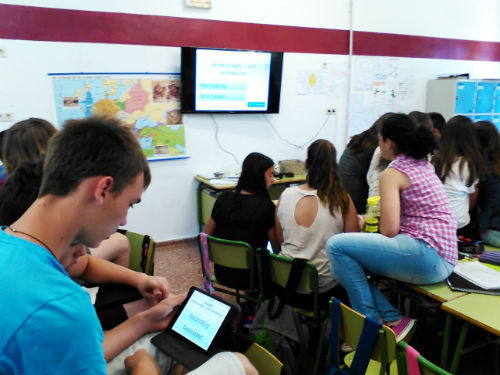
Share one recent story that illustrates how the Edmodo technology has enhanced the ways in which teachers, students, administrators or parents communicate in your community.
Teresa Perles, Spain: I teach English as a foreign language. I had a new student who came with a poor level of English, and our school has an advanced standard for this subject. With the support of his mother, he received intensive intervention via Edmodo and was able to reach the minimum objectives in just under three months!
Bianca Hewes, Australia: I have started working at a new school in the role of professional learning coordinator. The first thing I did was create new Edmodo groups for my new classes, and introduced them to a range of new ways to use it such as silent conversations, small group collaborations and completing class tasks digitally. I have also established staff PLC (professional learning community) teams who are working on action research projects examining their practice. To support this process, I have created a PLC Edmodo group, and added a range of useful resources to folders that each teacher can access anytime, anywhere.
Lisa Finch, United Arab Emirates: I’ve set up a project called TechPreneur that uses Edmodo as a communication tool between schools. Two students from my school team up with a pair from another, located elsewhere in the world. They work collaboratively, over a period of weeks, to create an idea for a new tech startup. All design work and project management takes place via Edmodo. The students gain a real sense of how a new product would be innovated in the real world, where project team members could be scattered across the globe. It stimulates creative problem solving and provides students with the chance to interact with peers from another country/culture.
Josh Gaines, Thailand: Many of my students are English Language Learners and very shy to use English. For many of them Edmodo is a safe way to communicate with a teacher.
Premanand Edward Malyakkal, India: An assignment was given via Edmodo in 2012 to a group of tertiary learners. One student came up with the topic, Merits and Demerits of the Internet. After evaluation, this was posted on the class blog. Within a few days, this particular article received numerous comments from various parts of the world.
Lisa Goochee, Brazil: I attended a student leadership conference at the American School (Lincoln School) of Buenos Aires. It is called the Global Issues Network Conference and focuses on global improvement projects from school-based student groups from each region of the world. My 4th grade students and I were working on our own small-scale project-based learning units at the time centered around questions of school citizenship and character values. I went to the conference to learn what the older students were doing. While I was at this conference, I detailed stories about these student teams from around the South American continent, specifically their work and their impact, back to my Brazil kids via Edmodo. My students were so inspired by the stories that they created a small team of students to research unfair child labor practices and made a small awareness campaign in our community to advocate conscious consumer practices before the holiday shopping season. They filmed their work and posted some of their flyers on Edmodo. This was done outside of school time.
John Choins, Texas: I created educational videos and posted the link to those videos on Edmodo. Students watched the videos, completed the practice problems included in the videos, and sent those problems back to me through the Edmodo “Assignment” feature. I evaluated their work, and then designed the class time to meet the needs of the students, based on their practice problems. Through Edmodo, the students were also able to communicate with me and other students about the videos and ask me questions to clarify something they saw in the video. The most fun thing students did, though, was notify me when they found a mistake in one of the videos.
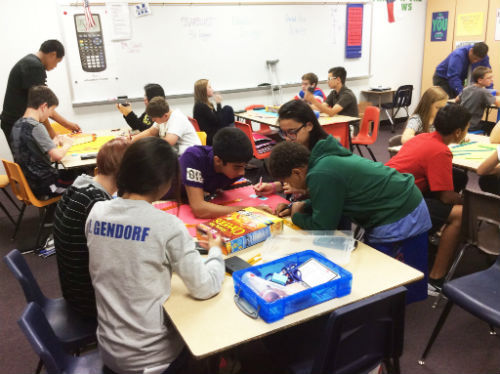
When books came along, oral histories became less important. Let’s talk about other examples of traditional education that have become outmoded because of technology. What’s become much more important in today’s classroom because of technology, and conversely what do you believe should be significantly de-emphasized.
Teresa Perles, Spain: Long explanations on the blackboard have definitely become outmoded in our school. Today, all classrooms have a screen on which we can project the presentations we have created or chosen beforehand, and then we share them with students; or we implement flipped teaching.
Bianca Hewes, Australia: There are obvious practices that are less necessary, such as creating title pages, ruling margins and answering comprehension questions in workbooks. Collaboration skills are far more essential in a global world than being able to work independently in a closed environment. Digital technologies such as Edmodo are really powerful in facilitating the development of essential skills required of young people entering today’s workforce. Communicating online with peers teaches them the importance of etiquette, and the subtleties of the written word versus the spoken.
Lisa Finch, United Arab Emirates: The 21st century classroom is now open 24/7. Tools such as Edmodo make education accessible at times when learning may be more convenient. Parents can also access resources and lesson content – allowing them to get a fuller flavor of what their children are engaging with. Learners are not isolated. Teachers are less restricted. This triad creates a powerful learning community that is supported, flexible and transparent.
Josh Gaines, Thailand: Students are now able to turn in work to me, and receive feedback and grades directly through Edmodo. One area that is becoming much more important for students is online portfolios, or any online space available for students. Students need a place on the web they can call their own and tools that allow them to shape the internet to meet their own needs.
Premanand Edward Malyakkal, India: Projecting notes via PowerPoint is the order of the day. However, the sad thing is that no major changes are incorporated/updated into these notes. The ‘library habit’ of a teacher has been substituted with an iPad and the teacher walks with an air of assumption that ‘everything’ is at beck and call. Teachers need to introspect themselves, learn new technologies suitable for their classrooms, update their skills and benefit from the information overflow.
Lisa Goochee, Brazil: The most outdated and destructive vestigial feature in the modern K-12 space is the emphasis on standardized testing along with the college admissions and enrollment processes which rely on these testing conventions. With the digital tools we have on hand, we could liberate children to experience and demonstrate their learning in far more compelling ways via live documentation of community-based or real-world endeavors. We need to align school learning to the real-world we are all inheriting. As students can find out most any information for themselves, the values and purpose of our education needs to be discussed in open forums on all scales of family to society. Without more conversations about our educational values and purpose in the wake of this new age of open learning, we will surely struggle to set realistic boundaries for safety and clear goals to support all students to their individual successes. We are likely to continue disrupting students’ natural curiosities when it has never been easier to avoid, all for the sake of maintaining an outdated status-quo of educating. We should de-emphasize content standards and emphasize skill-building, competency-building, and character education to build a healthier world.
John Choins, Texas: Hard copies of textbooks have become unnecessary because of technology. In today’s classrooms, teaching students how to learn, where to find valid information online, as well as how to use that information, has become more important. Teachers must adapt to become facilitators who help students learn, instead of ones who just give students information, expecting them to learn it.
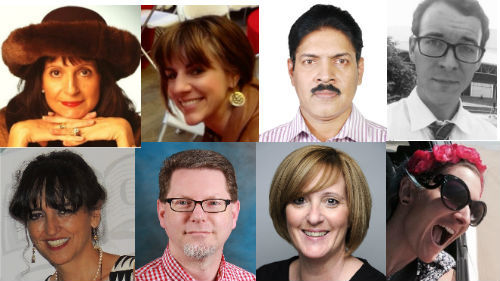
Join me and globally renowned thought leaders including Sir Michael Barber (UK), Dr. Michael Block (U.S.), Dr. Leon Botstein (U.S.), Professor Clay Christensen (U.S.), Dr. Linda Darling-Hammond (U.S.), Dr. MadhavChavan (India), Professor Michael Fullan (Canada), Professor Howard Gardner (U.S.), Professor Andy Hargreaves (U.S.), Professor Yvonne Hellman (The Netherlands), Professor Kristin Helstad (Norway), Jean Hendrickson (U.S.), Professor Rose Hipkins (New Zealand), Professor Cornelia Hoogland (Canada), Honourable Jeff Johnson (Canada), Mme. Chantal Kaufmann (Belgium), Dr. EijaKauppinen (Finland), State Secretary TapioKosunen (Finland), Professor Dominique Lafontaine (Belgium), Professor Hugh Lauder (UK), Lord Ken Macdonald (UK), Professor Geoff Masters (Australia), Professor Barry McGaw (Australia), Shiv Nadar (India), Professor R. Natarajan (India), Dr. Pak Tee Ng (Singapore), Dr. Denise Pope (US), Sridhar Rajagopalan (India), Dr. Diane Ravitch (U.S.), Richard Wilson Riley (U.S.), Sir Ken Robinson (UK), Professor Pasi Sahlberg (Finland), Professor Manabu Sato (Japan), Andreas Schleicher (PISA, OECD), Dr. Anthony Seldon (UK), Dr. David Shaffer (U.S.), Dr. Kirsten Sivesind (Norway), Chancellor Stephen Spahn (U.S.), Yves Theze (LyceeFrancais U.S.), Professor Charles Ungerleider (Canada), Professor Tony Wagner (U.S.), Sir David Watson (UK), Professor Dylan Wiliam (UK), Dr. Mark Wormald (UK), Professor Theo Wubbels (The Netherlands), Professor Michael Young (UK), and Professor Minxuan Zhang (China) as they explore the big picture education questions that all nations face today.
The Global Search for Education Community Page
C. M. Rubin is the author of two widely read online series for which she received a 2011 Upton Sinclair award, “The Global Search for Education” and “How Will We Read?” She is also the author of three bestselling books, including The Real Alice in Wonderland, is the publisher of CMRubinWorld, and is a Disruptor Foundation Fellow.
Follow C. M. Rubin on Twitter: www.twitter.com/@cmrubinworld





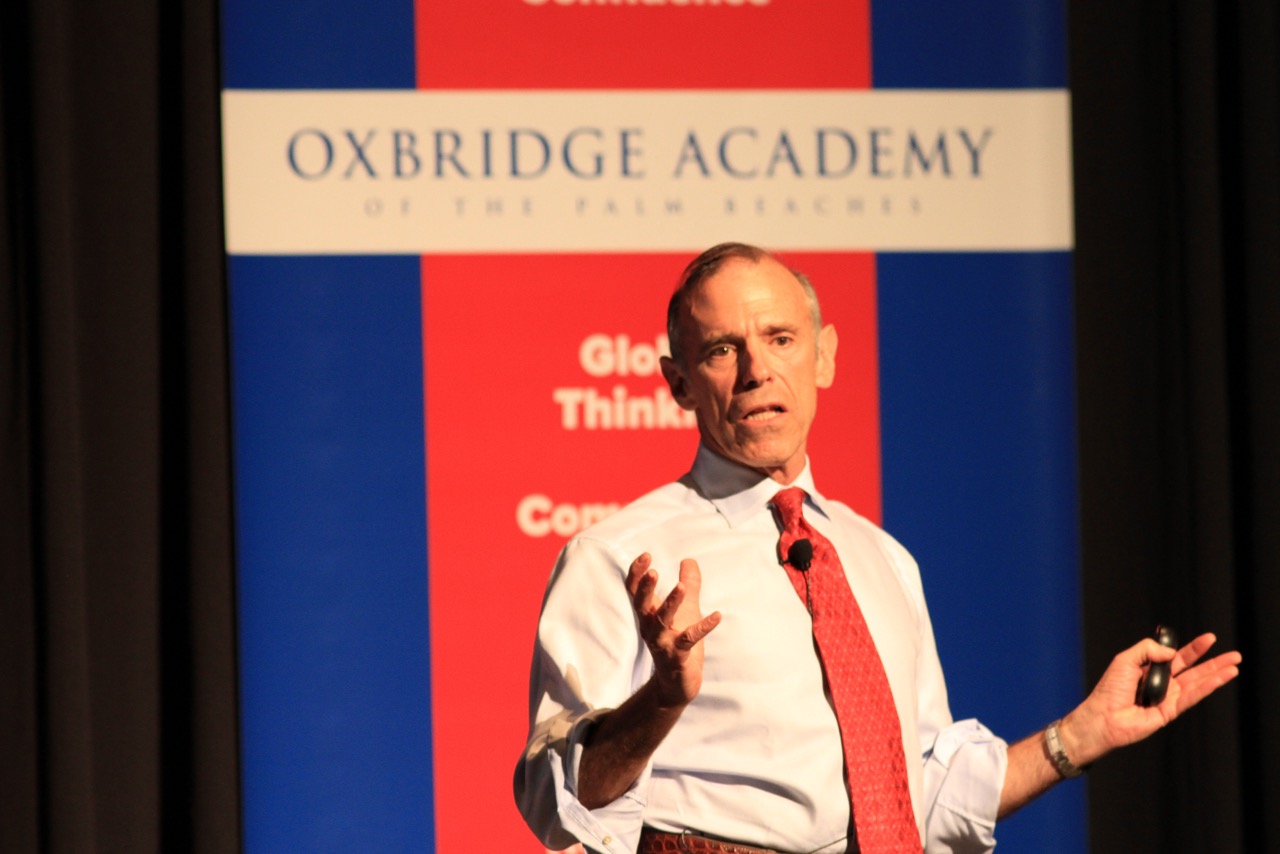
Recent Comments